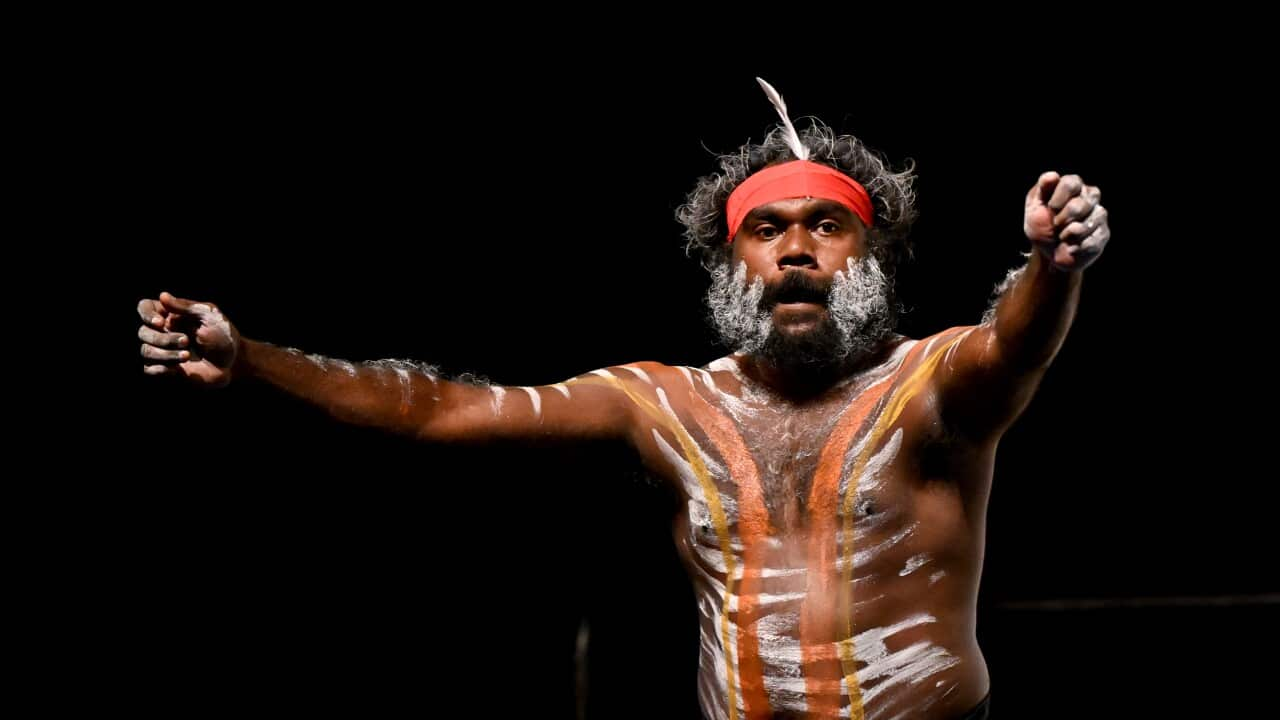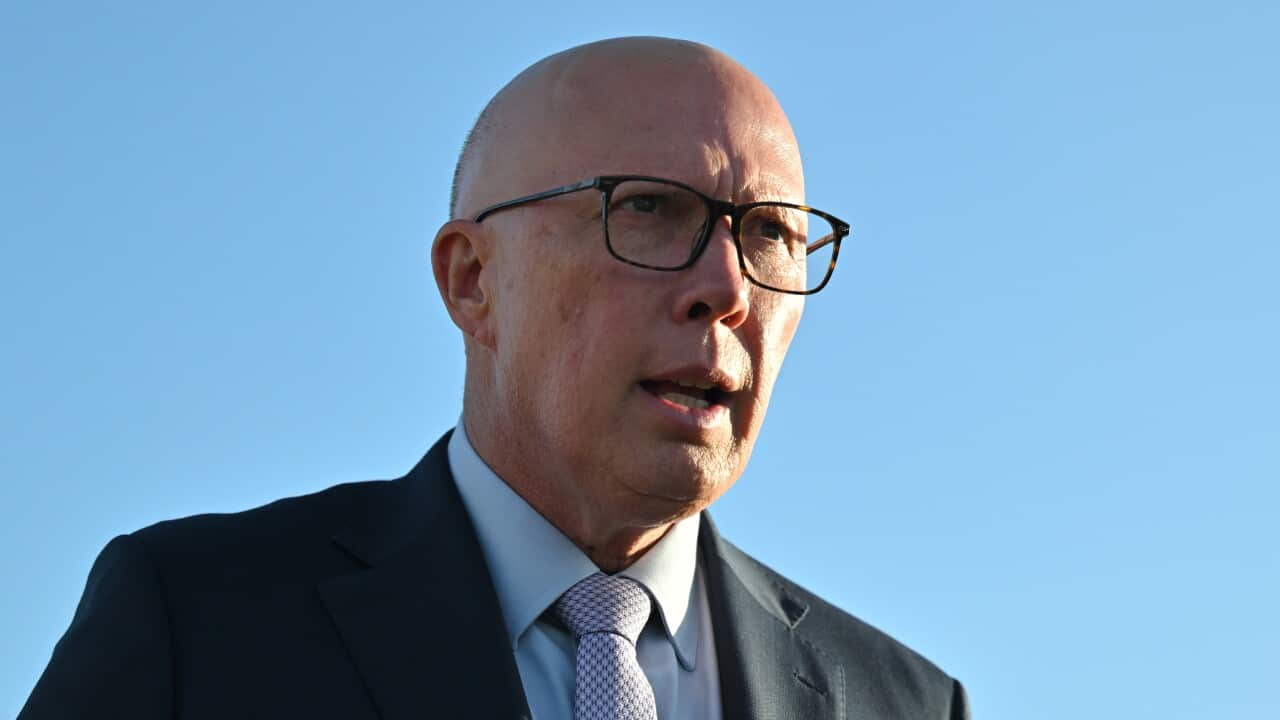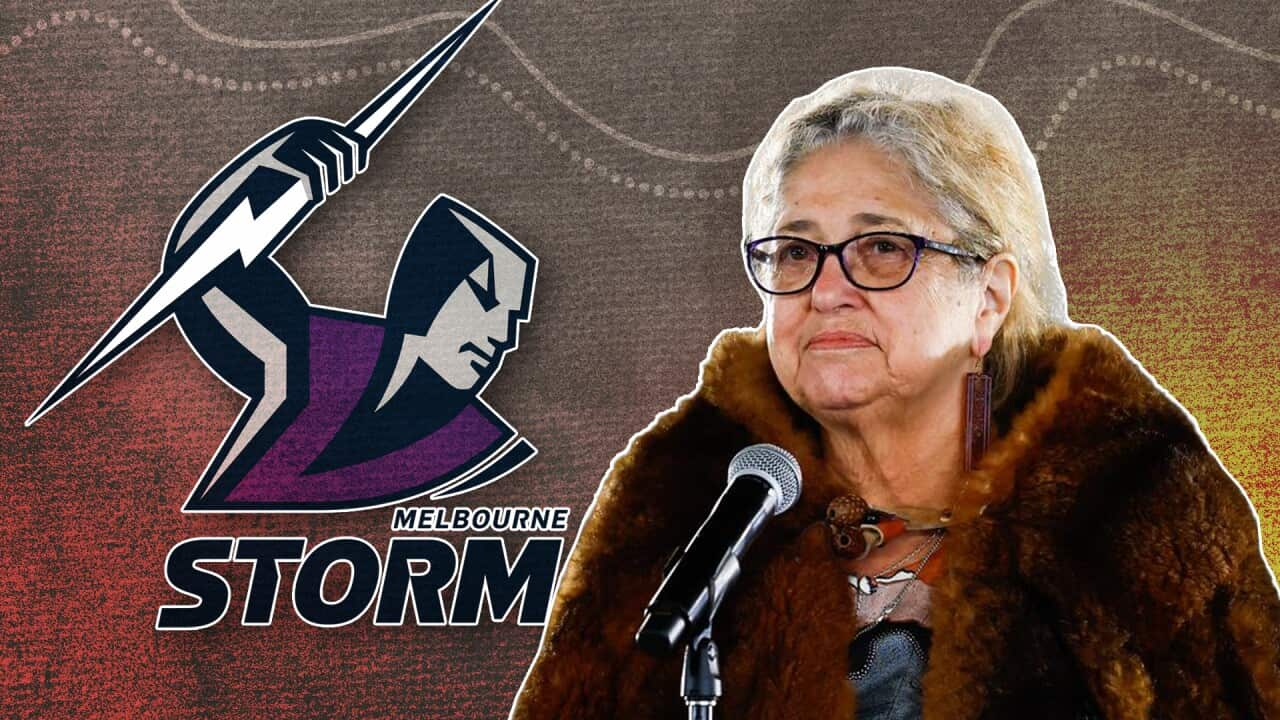Welcome to Country ceremonies have been part of Aboriginal and Torres Strait Islander cultures for thousands of years, and feature in many events in modern Australia.
Recently, Opposition leader Peter Dutton , and claimed the ceremonies and Acknowledgements of Country are "divisive".
Fulbright Scholar and Wiradjuri educator Jessa Rogers told NITV she does not believe the ceremonies are divisive.
"I can't think of any time in my life where I've been welcomed somewhere and felt that I was being divided or excluded," she said.
"The word welcome is a generous offering, and that is exactly what's happening when people are welcomed to Country ... I don't think [it's] divisive and I can't really understand that point of view."
Here's what you need to know about Welcome to Country ceremonies, their history, and why they are important.
What is a Welcome to Country ceremony?
A Welcome to Country is a ceremony that takes place at the beginning of an event, and is done by the traditional custodians of Country to formally welcome people onto their land.
It can include singing, dancing, a smoking ceremony and sometimes a speech.
Juru Elder Randall Ross said the ceremonies are part of a cultural obligation.
"The main reason to do Welcome to Countries is about welcoming people so they're safely on your Country, or you're crossing your Country," he said.
"Because you want to ensure that all people are safe when either moving around on Country or visiting Country."
READ MORE

What does Welcome to Country mean?
Rogers said it is important to understand the ceremonies are not about welcoming people to the country of Australia.
"We're talking about our own lands, our own people, the place that owns us," she said.
"So when we say Country, we're talking about something different. And I don't think many Australians actually understand that."

Welcome to Country ceremonies are often included in sporting events. Source: AAP / Daniel Pockett
She said the ceremonies are about respect and connection to Aboriginal and Torres Strait Islander culture.
"Welcome to countries are actually an opportunity to come together and seek consent on the land that we're walking on and actually be welcomed into a place of community and connection," she said.
"They are ultimately an invitation to the whole non-Indigenous community to participate in honouring the land and Country that we are on."
What is an Acknowledgement of Country?
Unlike a Welcome to Country, an Acknowledgement of Country can be done by a non-Indigenous person. It is often delivered at the start of meetings or events to pay respect to the Traditional Owners.
They are sometimes included in podcasts, film and television, and even by some flight captains when landing planes in Australia.
There is no set wording or laws for doing an Acknowledgement of Country.
They often feature phrasing such as: "I'd like to acknowledge the Traditional Owners of the land on which we meet today. I would also like to pay my respects to Elders past and present".
Why are Welcome to Country ceremonies being debated?
In an election debate on Sunday, Opposition leader Peter Dutton said he believes Welcome to Country ceremonies are "overdone".
On Monday, he said that while it is ultimately up to event organisers, he does not think the ceremonies should be included at Anzac Day services.
Turnbull-Roberts told NITV Dutton is in "no position" to be determining when or where Welcome to Country ceremonies are conducted.
"I think Dutton as a non-Indigenous person is not the person to be having this discussion, nor should it be up for debate whether he has any buy-in to this conversation at all," she said.
"Our Welcome to Countries, our Acknowledgements of countries, our places when we choose to do these are on the basis of the Traditional Custodians deciding to do this.
"It is not up to Dutton, nor is it up to any other person in a leadership position to determine whether they happen or not."
Larrakia Elder Richard Fejo said the ceremonies are about being "inclusive, not exclusive".
"We are welcoming people to our ancient lands and we're very spiritual people," he said.
"When I welcome people to my land, I ask that my ancestors guide and protect us always. So we're taking you under our wing and we're introducing you to our spiritual ancestors, we're asking for them to guide and protect you."

Welcome to Country ceremonies are not legally required, but are done as a mark of respect. Source: AAP / Daniel Pockett
"For the people that are out there that say, 'Welcome to Country is overused', you don't know our culture, we know our culture," he said.
"We are their cultural specialists about our people. And for those of you who would talk about money, talk about all kinds of things, these are excuses not to participate.
"But we, as Aboriginal people, we know our community, we know our protocols around community and we respect and honour these protocols."
Are Welcome to Country ceremonies required by law?
Welcome to Country ceremonies are not legally required to be done at Australian events.
Turnbull-Roberts said it is up to Traditional Custodians and Elders to decide whether a Welcome to Country will take place.
"For thousands and thousands of years, Welcome to Countries have been practised," she said.
"This isn't a new thing, this isn't a new way that we're overdoing, or it isn't something that's just come out of nowhere. Welcome to Countries have been here since the first sunrise."
Prime Minister Anthony Albanese said it was up to the organisations hosting events whether they have a Welcome to Country or not.
"It's up to them and people will have different views, and people are entitled to their views," he said during Sunday's debate.
"From my perspective, for major events, it is, of course, a sign of respect."
Dutton said he thought the ceremony was appropriate for the opening of Parliament but not events like Anzac Day.
Rogers said she believes there is a "deeper issue" of people not understanding Aboriginal and Torres Strait Islander culture.
"When [people] ask the questions about what is a welcome and why is it happening, I do genuinely believe that there is a lack of knowledge," she said.
"And what that calls for is a greater education of the Australian population and visitors here to what those protocols and ceremonies are actually for."
Visit the to access articles, podcasts and videos from SBS News, NITV and our teams covering more than 60 languages.





